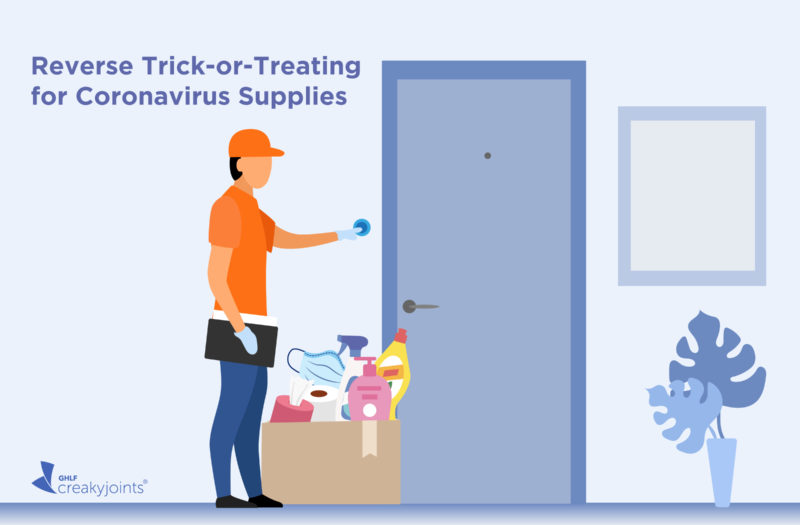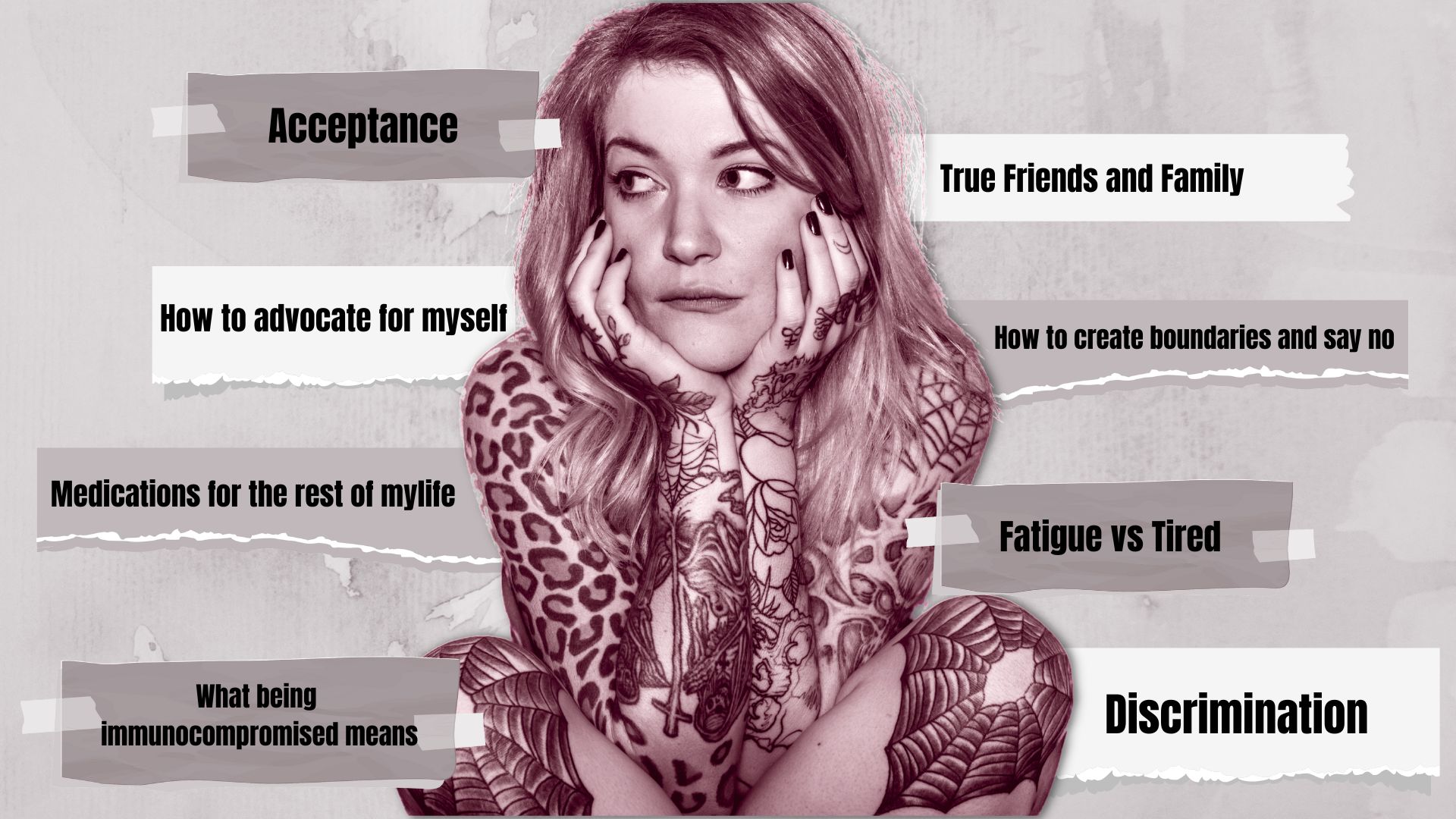Learn more about our FREE COVID-19 Patient Support Program for chronic illness patients and their loved ones.
Across the world, including the United States, health care workers are rationing face masks in light of the COVID-19 pandemic. We in the U.S. haven’t even hit peak infection yet.
In case you aren’t aware, medical masks are single-use items. If someone takes one off, they can’t put it back on. Many nurses and doctors are wearing a single mask for as long as possible without taking breaks to eat or drink to stay hydrated, causing already-exhausted workers to have further weakened immune systems. This, in turn, weakens the health care system as those workers may become more susceptible to the novel coronavirus and its complications.
Masks are vital to saving lives in health care settings, period.
Medical item shortages are also impacting more than health care workers on the front lines fighting COVID-19. People with chronic diseases who rely on supplies — like alcohol swabs for medication injections at home, toilet paper due to living with gastrointestinal diseases like Crohn’s disease, face masks to protect our immunocompromised selves when need to go out in public for necessary reasons (per our doctors’ recommendations), or specific foods for medically necessary diets — are facing barriers to taking care of ourselves due to sudden shortages of products we use daily to manage our lifelong diseases.
Also impacted: impoverished people who cannot “stock up” on even a basic safety net of supplies because they can’t afford it are finding it harder than ever to access basic necessities.
Panic-buying has caused these shortages. So, what can you do about it?
The ‘Trick-or-Treat’ Solution
If you are one such panic-buyer who has suddenly found yourself with months and months’ worth — or even years’ — worth of supplies you don’t necessarily need, now is the time to pass them along to health care workers and people who rely on these supplies for daily life (even when we aren’t dealing with a pandemic), and people living in poverty.
Let’s call it reverse trick-or-treating. It’s time to knock on someone’s door who needs supplies and leave them a bag of treats — er, supplies.
I connected with an epidemiologist (a scientist who study diseases and health problems within populations) about this concept of reverse trick-or-treating. Here is what Flojaune Cofer, MPH, PhD, Senior Director of Policy with Public Health Advocates in California (Dr. Flo) had to say about this idea.
Q: What do you think about the concept of ‘reverse trick-or-treating?’
Dr. Flo: The concept of reverse trick-or-treating is putting into practice the concept of social connection while maintaining social distancing. It is ensuring that goods are not hoarded for individual wealth or benefit, but rather shared with those who need them within a community. It strengthens our ties and supports our neighbors.
Q: If people participate in reverse trick-or-treating, what should they know about keeping medical materials sanitized and safe? What else should they be aware of doing to make sure the supplies can be used? How can they find places to donate?
Dr. Flo: If people would like to participate, the best way to keep supplies safe is to:
- Keep them in their original tamper-free packaging
- Wipe the package down with alcohol or Lysol and use gloves when handling it to avoid contaminating the surface
If you aren’t connected with a faith community or organization that has direct community contact or provides services, the best way to find places to donate is to contact local social service agencies, homeless service agencies, or your county’s public health department. You can also post about supplies on social media to identify people within your network who may have a need or know someone who does. Be sure to include contact information and details for pick-up or drop-offs.
Q: How can reverse trick-or-treating help neighbors and community members who don’t have money/supplies/ability to get their own?
Dr. Flo: Reverse trick-or-treating allows for people who may have stockpiled too many needed products to share those with people who didn’t have the means to purchase items in advance, have a need for items that are now sold out, and are unable to go out to get items because of limited transportation or having high-risk health conditions
Many people — out of an abundance of caution — purchased years’ worth of toilet paper, masks, soap, hand sanitizer, cleaning supplies, and other food items that can help families whose income is cut or eliminated due to widespread closures or who have high-risk conditions and need these supplies to safely navigate the pandemic.
Q: How is the shortage of medical supplies (masks, etc.) impacting health care workers? Chronic disease patients who do medical care at home? Others?
Dr. Flo: The shortage of medical supplies is putting medically fragile persons and health care workers, both of whom are on the front line as the most impacted and at-risk populations, at risk of contracting COVID-19, or other infections such as the seasonal flu. Without supplies the risk of disease increases for health care workers, which can decrease the staffing capacity for hospitals and clinical settings. It also prevents medically fragile people from being able to safely attend necessary health care appointments and obtain medication without assuming an unacceptable personal risk.
***
If Dr. Flo’s answers aren’t reason enough to go reverse trick-or-treating with your stock of wares, I don’t know what is.
If you’re well-stocked and healthy, it’s time to share your spoils with those who have none. Take a picture of your trick or treat bag and use the hashtag #TrickOrTreatCOVID19 to share the wealth and encourage others to do the same.
If you have medical supplies or sanitizer or masks or toilet paper that you have hoarded, now is the time to share. Give those items away to people who need it so we are all better able to protect ourselves from COVID-19.
Get Free Coronavirus Support for Chronic Illness Patients
Join the Global Healthy Living Foundation’s free COVID-19 Support Program for chronic illness patients and their families. We will be providing updated information, community support, and other resources tailored specifically to your health and safety. Join now.
Interview with Flojaune Cofer, MPH, PhD, Senior Director of Policy with Public Health Advocates in California






